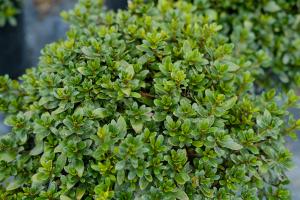Is Tap Water Better for Plants?
When it comes to watering plants, there are a lot of options to choose from. While some people swear by the benefits of using rainwater or distilled water, others wonder if tap water is just as good or even better for their greenery. Here are some of the factors to consider when deciding whether to use tap water on your plants.
Benefits of Tap Water
One of the main benefits of tap water is that it contains minerals that can be beneficial for plant growth. For example, many tap water sources contain calcium, which can help plants build strong cell walls. Other minerals found in tap water, such as magnesium and potassium, can also promote healthy growth and flowering.
In addition, most tap water contains some level of chlorine or chloramine, which are added to kill harmful bacteria and viruses. While these chemicals can be harmful to some microorganisms in the soil, they are generally safe for most plants and can help prevent diseases from spreading.
Drawbacks of Tap Water
Despite the benefits of tap water, there are some potential drawbacks to keep in mind. One of the main concerns is that tap water can contain impurities that can harm plants. For example, if your tap water contains high levels of salt, it can build up in the soil over time and cause root burn or other problems.
Tap water can also contain heavy metals such as lead, copper, and zinc, which can be toxic to plants in high concentrations. These metals can accumulate in the soil over time, especially if you live in an area with old or corroded pipes.
How to Use Tap Water Safely
If you decide to use tap water on your plants, there are a few things you can do to make sure it's as safe as possible. One option is to use a water filter or a water softener to remove impurities and minerals that could harm your plants.
Another option is to let your tap water sit for a few hours before using it on your plants. This can help chlorine and other chemicals evaporate, reducing the risk of harm to your plants.
It's also a good idea to test your tap water periodically to make sure it doesn't contain high levels of harmful substances. You can use a water testing kit or send a sample to a laboratory for analysis.
Conclusion
So, is tap water better for plants? The answer depends on your individual situation. If your tap water is relatively pure and contains beneficial minerals, it can be a good choice for watering your plants. However, if your tap water is contaminated with impurities or heavy metals, you may want to consider other options.
Ultimately, the key is to be aware of what's in your tap water and take steps to minimize any potential harm to your plants. With a little extra care and attention, you can ensure your plants thrive and grow strong and healthy.

 how many times do yo...
how many times do yo... how many planted tre...
how many planted tre... how many pine trees ...
how many pine trees ... how many pecan trees...
how many pecan trees... how many plants comp...
how many plants comp... how many plants can ...
how many plants can ... how many plants and ...
how many plants and ... how many pepper plan...
how many pepper plan...






























